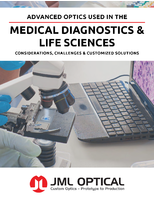Perfecting Compressor Refrigerant-Oil Balance
Share:

Boston - "Too much lubricant and the compressor does not cool properly; but too much refrigerant and the compressor's life is shortened by bearing wear," according to a senior engineer at a major North American compressor manufacturer. "We use Cambridge viscometers to help find the right balance for each of our products. The ability to mount these viscometers directly in our test compressors cannot be duplicated by any other viscometer."
Air conditioning and compressor manufacturers worldwide are developing new mixtures and re-designing their equipment for new, more environmentally-friendly refrigerants. This affects compressors and air conditioning systems for households, businesses and vehicles.
"Cambridge makes the viscometer of choice for compressor engineers worldwide," says Cambridge Viscosity President Robert Kasameyer. "American, Asian and European compressor manufacturers prefer our viscometers because of our very small size, our ability to work under a wide range of pressures and temperatures, as well as our inherent accuracy and reliability. Engineers typically mount our SPL571 or SPL501 sensors directly in the compressor sump or a pressurized line taking continuous viscosity and temperature measurements throughout the test cycle. At the same time, manufacturers of both refrigerants and lubrication oil use Cambridge Viscosity VISCOlab PVT High Pressure viscometers to analyze mixtures and their components to simulate pressure extremes in the rolling elements of the compressor."
About Cambridge Viscosity
Cambridge Viscosity, a leader in advanced laboratory and production viscometer systems, designs automated viscometers used worldwide by oil refineries and petrochemical operations to optimize compressor design, and monitor conditions for lubrication and refrigeration oils for operating compressors. Cambridge's worldwide reach is important for providing application engineering support and service wherever and whenever needed.
Cambridge Viscosity's sensors and viscometer systems conform to ASTM, DIN, JIS and ISO standards, with a range of models designed to meet specific industry and application needs. Certifications include ATEX Class 1, Div 1, CE, and FM. For additional information visit: www.cambridgeviscosity.com




